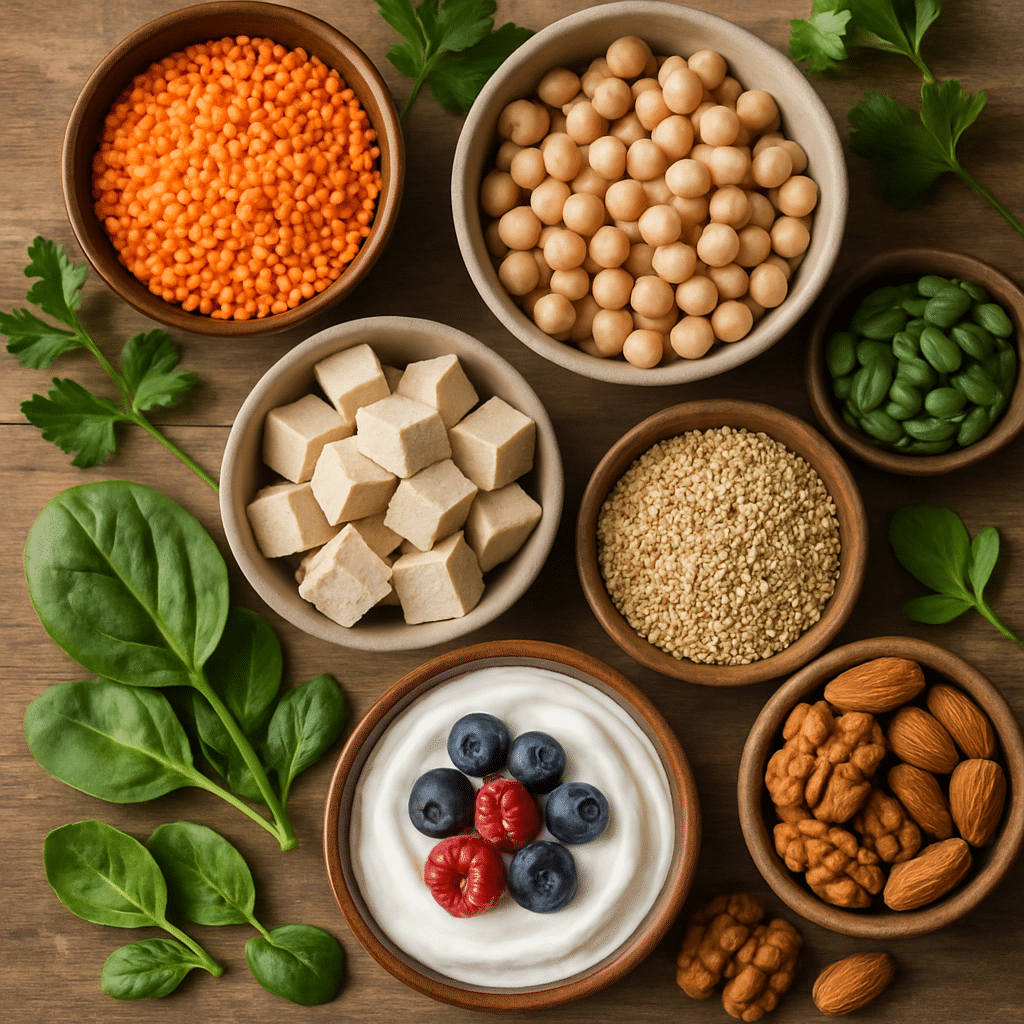If you’re a health-conscious adult who’s chosen to follow a vegetarian lifestyle, you might be wondering: how can I get enough protein without eating meat? Well, you’re in the right place! Finding high protein foods for vegetarians is crucial—not just to stay full and energized, but to support muscle growth, maintain a healthy immune system, and promote overall natural wellness. In this article, I’ll walk you through the best vegetarian protein sources, helping you understand why protein matters, identify the top foods packed with protein, and learn how to enjoy a well-rounded, protein-rich diet without hassle.
We’ll dive into legumes, soy products like tofu and tempeh, nutrient-dense grains, protein-packed nuts and seeds, dairy options for lacto-vegetarians, and even lesser-known powerhouses like seitan and spirulina. Plus, I’ll share practical tips on combining plant proteins for complete nutrition and offer delicious snack ideas perfect for busy days. By the time you finish reading, you’ll feel confident about incorporating these natural, high-protein vegetarian foods into your diet, boosting your wellness in the most delightful and sustainable way.
Why Protein Is Essential in a Vegetarian Diet
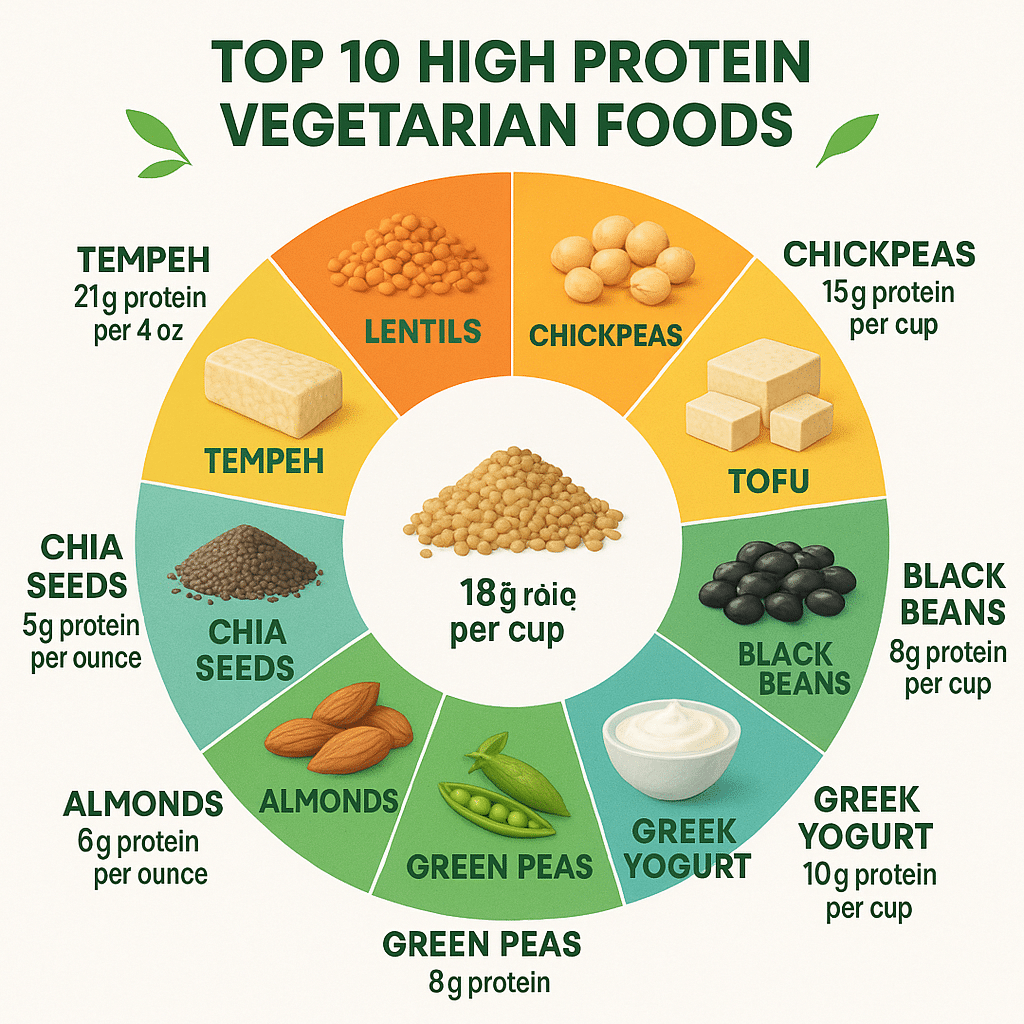
Before we jump into the best high protein foods for vegetarians, let’s take a moment to understand why protein is so essential, especially if you’re focused on natural wellness.
Understanding Protein Requirements for Health-Conscious Adults
Protein is the building block of life. It’s made up of amino acids that repair tissues, build muscle, and produce vital enzymes and hormones. For adults, the general recommendation is about 0.8 grams of protein per kilogram of body weight, but for those who are active, aiming for natural fitness, or seeking muscle building, this requirement can increase to 1.2–2.0 grams per kilogram.
As health-conscious adults, we want quality and quantity. A vegetarian diet can absolutely fulfill these protein needs when carefully planned. In fact, many plant-based diets offer additional benefits like antioxidants, fiber, and healthy fats, which make our bodies thrive naturally.
The Role of Complete vs. Incomplete Proteins in Vegetarian Nutrition
Proteins from animal sources are considered “complete” because they contain all nine essential amino acids in adequate amounts. Many plant-based proteins are “incomplete,” meaning they might lack one or more essential amino acids. But here’s the kicker: by combining different plant protein sources throughout the day, vegetarians can easily obtain complete proteins to meet their body’s demands. We’ll explore these strategies later on.
Top High Protein Legumes for Vegetarians
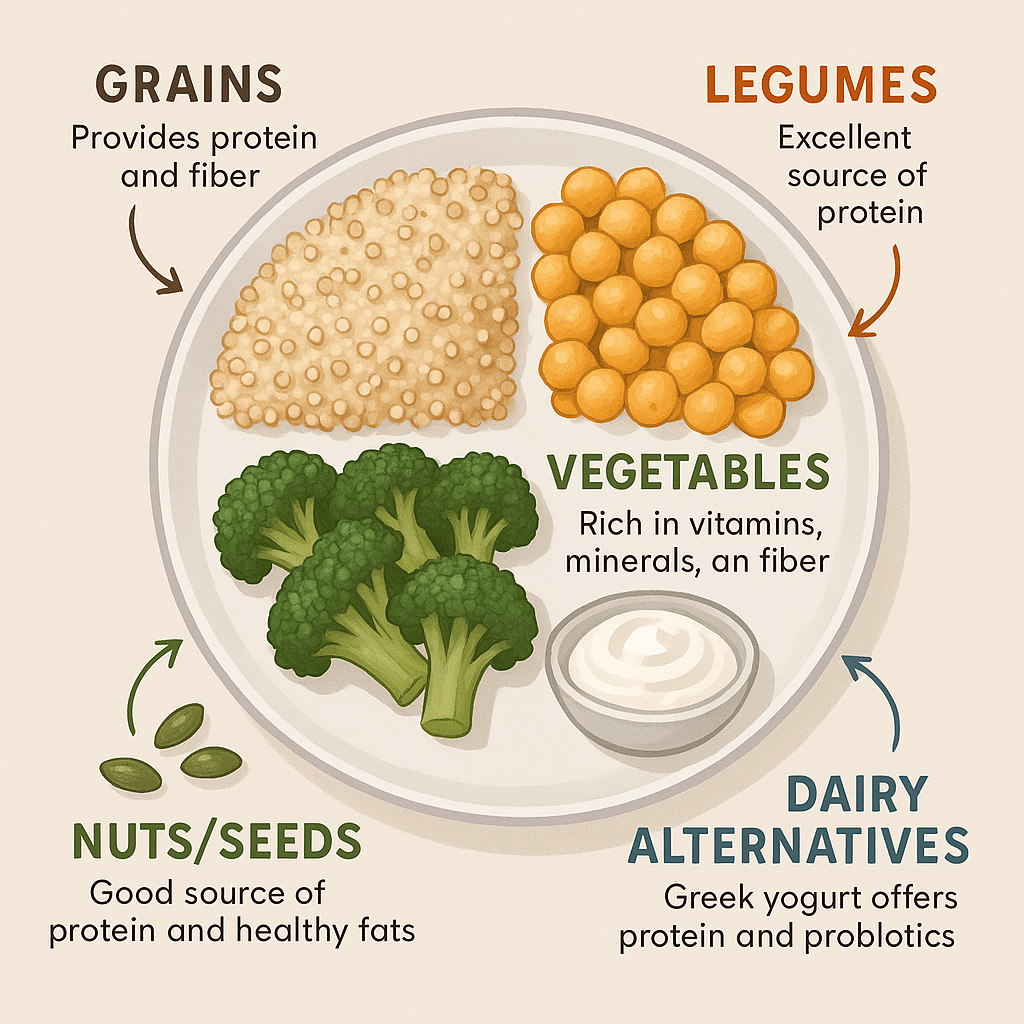
Legumes are a cornerstone of any high protein vegetarian diet. They’re not just rich in protein; they also provide essential fiber, vitamins, and minerals.
Lentils: The Nutrient-Dense Protein Powerhouse
Lentils are a superstar among legumes, delivering about 18 grams of protein per cooked cup. They come in red, green, brown, and black varieties, each offering subtle taste differences and bright, versatile options for meals. Beyond protein, lentils provide iron, folate, and magnesium, crucial for sustained energy levels.
I often recommend lentils for muscle-building vegetarian diets because they support recovery when paired with whole grains. Use them in soups, salads, stews, or even veggie-based patties for a simple protein boost.
Chickpeas and Beans: Versatile and Protein-Rich Options
Chickpeas (garbanzo beans) offer about 15 grams of protein per cooked cup. They’re incredibly versatile—think hummus, roasted snacks, or curries. Other popular beans like black beans, kidney beans, and navy beans also bring similar protein content, approximately 15 grams per cup.
Besides protein, these legumes are loaded with fiber, which aids digestion and keeps blood sugar stable. Their versatility means you can eat them in salads, chilis, and even high protein vegetarian snacks for energy throughout the day.
Green Peas: The Underappreciated Protein Source
Green peas might not get as much spotlight, but they pack roughly 9 grams of protein per cooked cup. They’re great for mixing into pastas, risottos, or as a side dish. Plus, peas provide vitamin C and K, boosting your immune system and bone health.
Soy-Based Proteins: Tofu, Tempeh, and Edamame
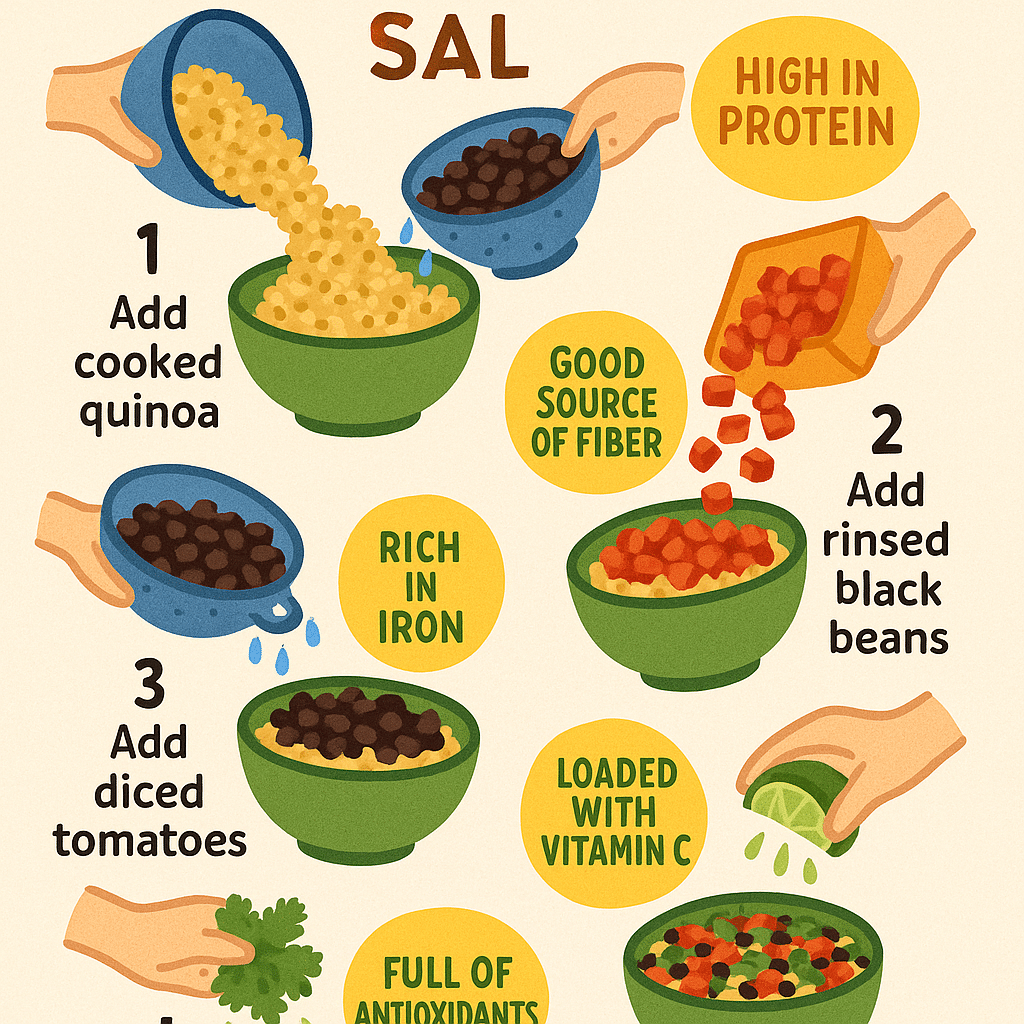
Soy is one of the richest plant-based high protein foods for vegetarians, offering complete protein and versatility.
Tofu: The Ultimate Plant-Based Protein
Tofu contains roughly 10–20 grams of protein per 100 grams, depending on firmness. It’s an excellent source if you’re looking to build muscle or stay energized. What’s great about tofu is its neutral flavor—it soaks up spices and sauces beautifully, making it perfect for a wide range of dishes from stir-fries to smoothies.
Check out well-known brands like Nasoya and House Foods that offer organic and non-GMO options.
Tempeh: Fermented Goodness with High Protein and Probiotics
Tempeh provides about 19 grams of protein per 100 grams. It’s fermented, which means it also supports gut health with probiotics—a double win for wellness!
Tempeh has a nutty flavor and firm texture, fantastic for sandwiches, salads, and grilled plates. I love how it’s packed with vitamins like B12, making it ideal for vegetarians focusing on natural, holistic health.
Edamame: Young Soybeans Loaded with Protein and Nutrients
Edamame, the young, green soybeans served steamed or boiled, are a great snack or salad topping, offering about 17 grams of protein per cup. They’re rich in fiber, iron, and calcium too, making them a well-rounded addition to your high protein diet.
Protein-Rich Whole Grains and Seeds
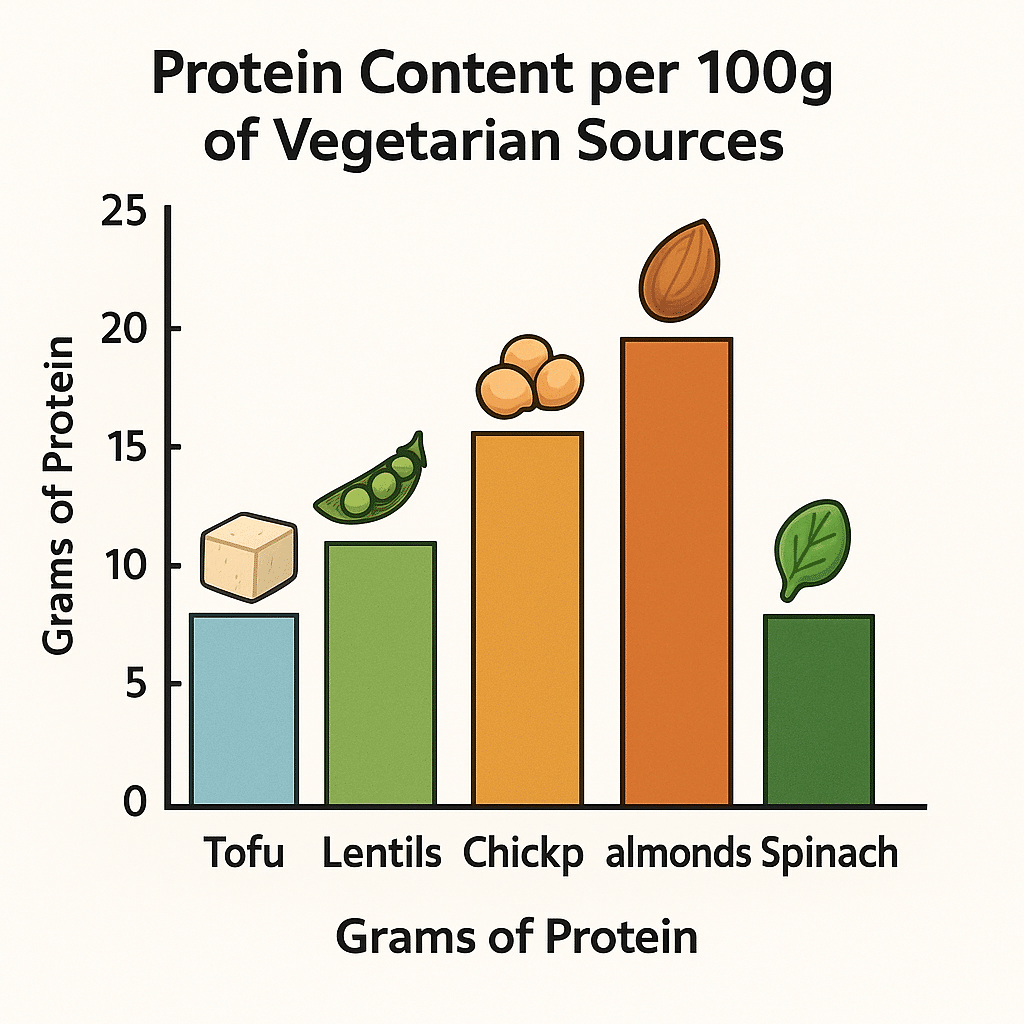
Whole grains and seeds don’t just fill you up; they add an important protein punch.
Quinoa: The Complete Protein Grain
Quinoa is a complete protein, which is rare among grains. It provides 8 grams of protein per cooked cup and contains all nine essential amino acids. Plus, quinoa is gluten-free and high in fiber, magnesium, and iron.
It’s a perfect grain base for salads, pilafs, or even vegetarian burger patties. Brands like Ancient Harvest offer organic quinoa options that are easy to cook.
Sprouted Grains: Enhanced Nutrient and Protein Bioavailability
Sprouted grains such as sprouted wheat, barley, and brown rice have higher protein digestibility than their unsprouted counterparts. Sprouting activates enzymes that break down anti-nutrients, improving your body’s ability to absorb proteins and minerals.
You’ll find sprouted bread and cereals at health food stores and natural markets, making it easy to incorporate this nutrient boost.
High Protein Nuts and Seeds: Almonds, Chia, Hemp, and Flax Seeds
Nuts and seeds are excellent sources of protein and healthy fats.
| Food | Protein (g) per 1 oz (28g) | Additional Benefits |
|—————-|—————————-|————————————————–|
| Almonds | 6 | Vitamin E, magnesium |
| Chia Seeds | 5 | Omega-3 fatty acids, fiber |
| Hemp Seeds | 9 | Complete protein, rich in essential fatty acids |
| Flax Seeds | 5 | Fiber, omega-3s, lignans |
Including a handful as snacks or sprinkling seeds on oatmeal and salads helps keep you satisfied and nourished. Plus, these foods support heart and brain health, proving once again that natural high protein vegetarian foods for wellness don’t just fuel—they heal.
Dairy-Based High Protein Foods for Lacto-Vegetarians
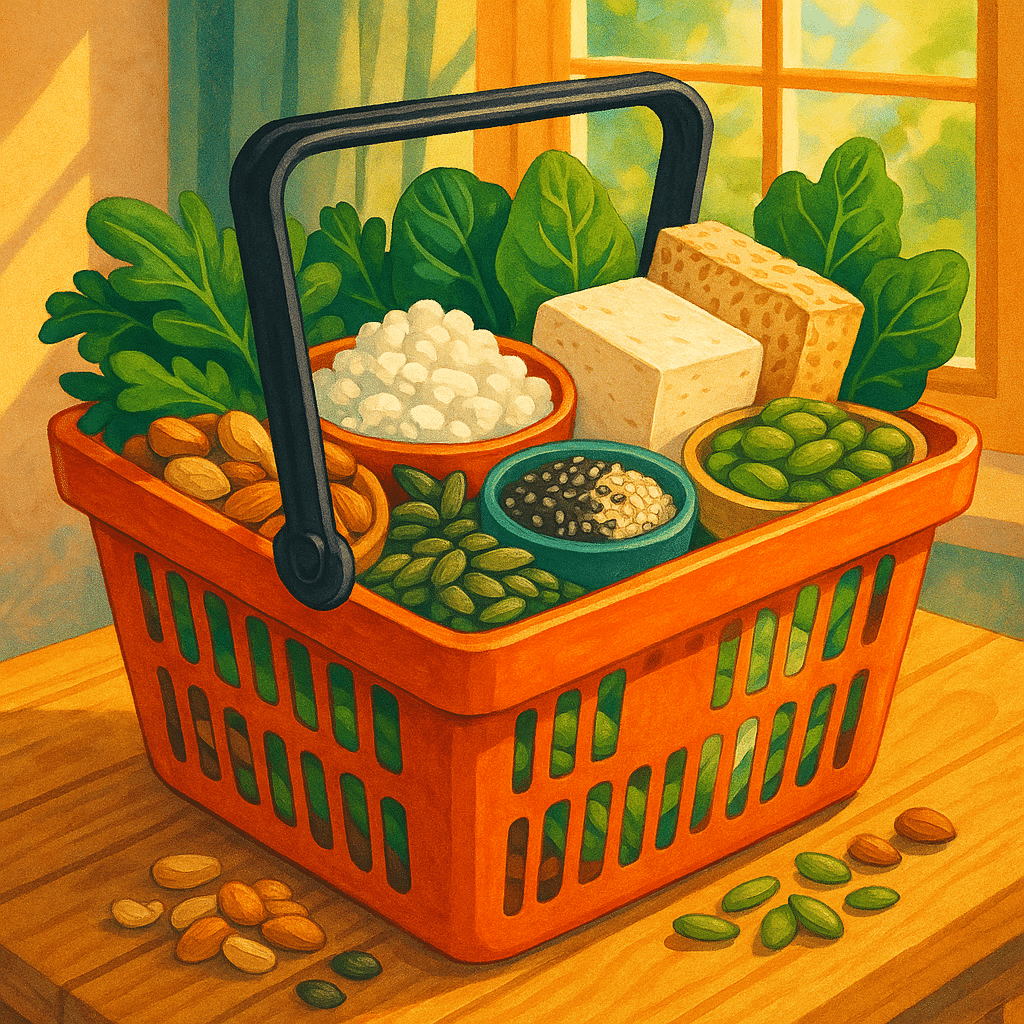
If you consume dairy, these foods give you a hefty dose of high-quality protein.
Greek Yogurt and Cottage Cheese: Protein with Probiotics
Greek yogurt packs about 15–20 grams of protein per 6 ounces and also contains probiotics for gut health. Cottage cheese offers approximately 14 grams per half-cup with a creamy, satisfying texture.
Choose plain, unsweetened versions to avoid added sugars. Brands like Fage and Daisy are excellent options.
Milk and Cheese: Supporting Wellness with Protein and Calcium
Milk provides about 8 grams of protein per cup, and cheeses vary widely—from mozzarella’s 7 grams per ounce to harder cheeses like Parmesan with up to 10 grams.
Dairy is a rich source of calcium and vitamin D, supporting bone strength and overall vitality. Enjoy them thoughtfully in balanced meals or as part of natural high protein vegetarian snacks for energy.
Seitan and Spirulina: Lesser-Known but Powerful Vegetarian Protein Sources
Seitan: The Wheat Meat Alternative
Seitan, made from wheat gluten, boasts about 25 grams of protein per 3 ounces. This chewy, meat-like ingredient is fantastic for stir-fries, sandwiches, and stews. It’s a favourite among vegetarians needing a high-protein, low-fat food.
Be mindful of gluten sensitivity if you decide to try seitan.
Spirulina: The Algae Superfood with Exceptional Protein Content
Spirulina powder is a nutrient-dense blue-green algae containing roughly 57 grams of protein per 100 grams, though typical serving sizes are much smaller (1–2 tablespoons).
It’s rich in antioxidants, B vitamins, and iron. Add it to smoothies or juices to give your diet a supercharged protein and nutrient boost.
Combining Plant Proteins: How to Achieve Complete Protein Intake
Complementary Protein Pairings for Vegetarians
To meet your essential amino acid needs, pair plant proteins thoughtfully. Classic combos include:
- Rice and beans
- Hummus and whole wheat pita
- Peanut butter on whole grain bread
- Lentils with quinoa
Eat these complementary pairs throughout the day rather than stressing over every meal.
Meal Planning Tips for Protein-Rich Vegetarian Diets
- Include legumes daily.
- Snack on nuts and seeds.
- Mix whole grains with legumes or soy-based proteins.
- Incorporate dairy if you consume it.
- Experiment with fermented soy products like tempeh for gut health and enhanced protein absorption.
Planning meals this way ensures you get not only enough protein but well-balanced plant-based nutrition.
High Protein Vegetarian Snacks for Energy and Muscle Building
Snacking is an excellent opportunity to boost protein intake naturally. Some easy, tasty ideas:
- Roasted chickpeas with spices
- Greek yogurt with almonds and berries
- Edamame pods sprinkled with sea salt
- Nut butter on celery sticks or apple slices
- Homemade protein balls made with nuts, seeds, and dates
These snacks provide sustained energy and aid in muscle repair if you’re active. They’re perfect for busy days when you need a natural high protein vegetarian boost.
Unique Perspective: The Role of Fermented Plant Proteins in Enhancing Protein Absorption
How Fermentation Improves Protein Quality and Gut Health
Fermented proteins like tempeh and miso are rich in probiotics that improve gut microbiota, enhancing nutrient absorption. Fermentation reduces anti-nutrients like phytic acid, which can inhibit protein and mineral absorption.
Incorporating Fermented Protein Sources in a Balanced Vegetarian Diet
Make fermented soy products a regular part of your meals—think stir-fries, salads, or soups. They provide a natural and holistic way to boost protein intake and support overall wellness.
Key Points: Quick Takeaways
- Protein is vital for muscle repair, immune support, and natural wellness in vegetarians.
- Legumes like lentils, chickpeas, and beans are excellent protein sources.
- Soy products such as tofu, tempeh, and edamame provide complete proteins.
- Whole grains like quinoa and sprouted grains enhance protein intake and digestibility.
- Nuts and seeds not only offer protein but essential healthy fats and fiber.
- Dairy-based options suit lacto-vegetarians and are rich in protein and calcium.
- Seitan and spirulina are less common but extremely protein-dense vegetarian foods.
- Combining plant proteins throughout the day ensures you get all essential amino acids.
- Snacking on high protein vegetarian foods keeps energy levels steady and supports muscle building.
- Fermented proteins improve nutrient absorption and gut health, adding a wellness edge.
Conclusion: Embracing Variety for Optimal Protein Intake and Natural Wellness
At the end of the day, the best strategy for boosting wellness through a vegetarian diet is embracing variety and whole foods. Incorporating these high protein foods for vegetarians allows you to meet your protein requirements naturally while enjoying delicious, nutrient-dense meals. Whether you favor hearty lentils, flavorful tofu, crunchy nuts, or creamy Greek yogurt, every protein source contributes uniquely to your health journey.
Remember, it’s not about perfection but balance—combine foods intelligently, savor your meals, and trust that nature’s bounty offers everything you need to thrive. If you’re ready to start incorporating these protein-packed vegetarian foods into your routine, why not explore new recipes, try out some fermented soy delights, or create your own protein-rich snacks? Your body will thank you with strength, energy, and radiant wellness.
FAQs
1. What are the best high protein foods for vegetarians seeking muscle building?
Lentils, chickpeas, tofu, tempeh, quinoa, and seitan are excellent choices. Combining these with nuts and seeds can help meet higher protein goals for muscle growth.
2. Can vegetarians get complete proteins from plant-based sources?
Yes! By combining complementary proteins, such as beans with rice or hummus with whole wheat, vegetarians can obtain all essential amino acids naturally.
3. Are soy foods like tofu and tempeh safe and healthy for everyday consumption?
Absolutely. Soy products are complete proteins rich in vitamins and minerals, and fermented varieties like tempeh add probiotics to boost gut health.
4. What are some easy high protein vegetarian snacks for energy?
Try roasted chickpeas, edamame, Greek yogurt with nuts, or homemade protein balls. These snacks are convenient for sustained energy and muscle repair.
5. How does fermentation help with protein absorption in vegetarian diets?
Fermentation breaks down anti-nutrients and adds probiotics, enhancing the bioavailability of protein and supporting digestive health.
By focusing on these natural, high protein foods for vegetarians, you’ll be setting yourself up for a nourished, energized, and vibrant lifestyle. Here’s to your wellness journey—one bite at a time!

